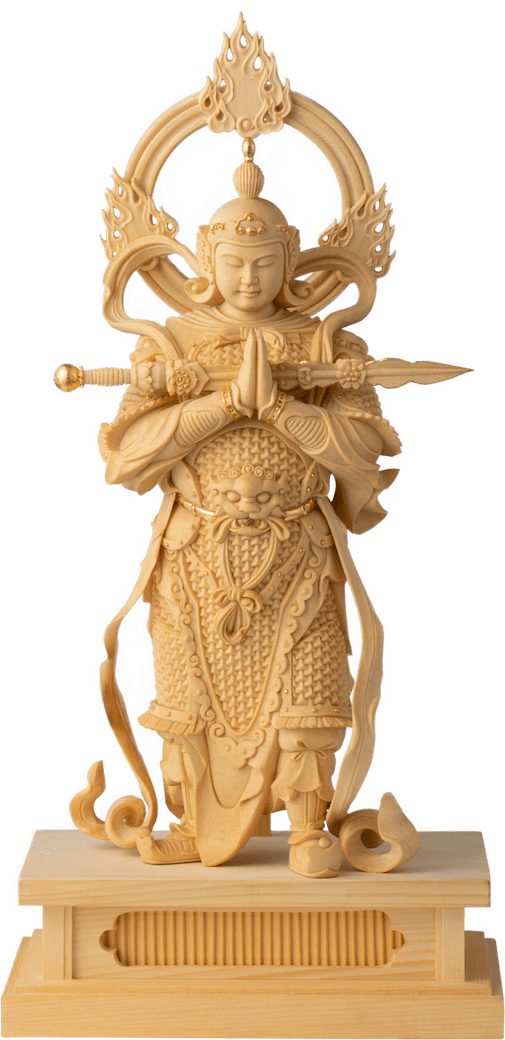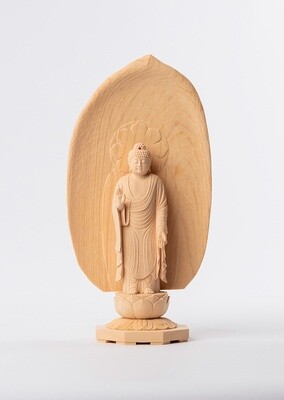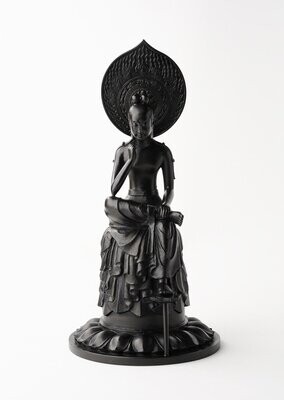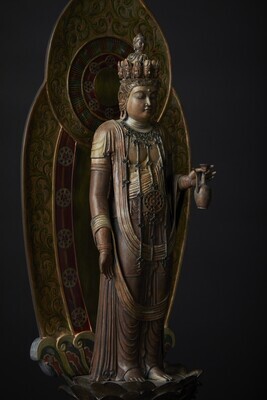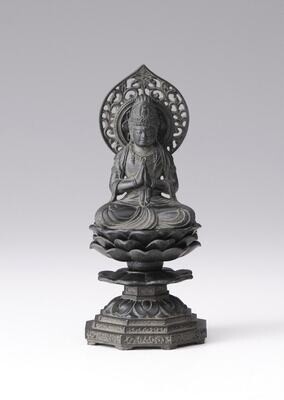Idaten (韋駄天)
From the beginning, Skanda was a deity who guarded monasteries and kitchens. However, due to folk beliefs, he came to be called a deity who runs well and an anti-theft deity. One folk belief is that when he guarded monasteries, a demon stole and ran away with the bones of Siddhartha Gautama. Skanda chased him and took the bones back. Another folk belief is that when he guarded kitchens, he ran around everywhere to gather food for Siddhartha Gautama.
The origin of Idaten is closely related to various religious traditions in Japan, primarily Buddhism, Taoism, and Shintoism. He possesses elements of a guardian deity in Buddhism, as well as characteristics of a divine being in Taoism, all intertwined with Japan's unique belief system. His name, "Idaten," is derived from the Sanskrit word "Vayu," which means "wind god," symbolizing the power of the wind.
Idaten is generally considered a deity of the wind, capable of controlling and manipulating the wind's force. He is often depicted as a swift-moving figure enveloped in the wind, typically with an uncovered face and sometimes clad in simple attire. His hair is depicted as flowing like the wind, and he may carry a fan, a symbol of the wind.
Idaten is believed to be a guardian of the wind and its mysterious powers, bestowing blessings upon people. He is also revered as a guardian deity of travelers, particularly for warriors and samurai. His worship gained prominence during the Edo period, and many shrines and temples were dedicated to him during this time.
Japan is home to numerous shrines dedicated to Idaten, where festivals in his honor are held. Notably, there are Idaten shrines in famous tourist destinations such as Higashiyama in Kyoto and Asakusa in Tokyo. These shrines are places where people offer prayers and gratitude to Idaten, the god of the wind.
Idaten's influence extends deep into Japanese culture, impacting literature, arts, martial arts, theater, and even modern media like anime and manga. His mystical powers and swiftness are often adopted as motifs in various creative works.
In summary, Idaten is a significant figure in Japanese religion and culture, symbolizing the mysterious power of the wind and serving as a protector and benefactor to people. His worship has deep roots in Japanese history and tradition and continues to be respected today.
- Size: H29.5×W14.7×D9.5 (cm), 350g
- Material: Hinoki (檜)
- Made in China
- You can choose the option to consecrate this statue (give an eye-opening ceremony) before it is shipped from Japan. If you choose this option, we will bring the statue to a Japanese temple, and pay them the necessary fees so that your statue is properly consecrated. The temple will issue a certificate of proof with your name on it, which will also be shipped together with your statue
- Shipped globally from Japan by using DHL. DHL is the world-class shipping services provider who makes international delivery a fast, smooth, and hassle-free experience. Delivery time can be faster than when shopping at an e-commerce website in your country, and of course your package will be covered by insurance. You can check the shipping cost for your entire order before you make a purchase
